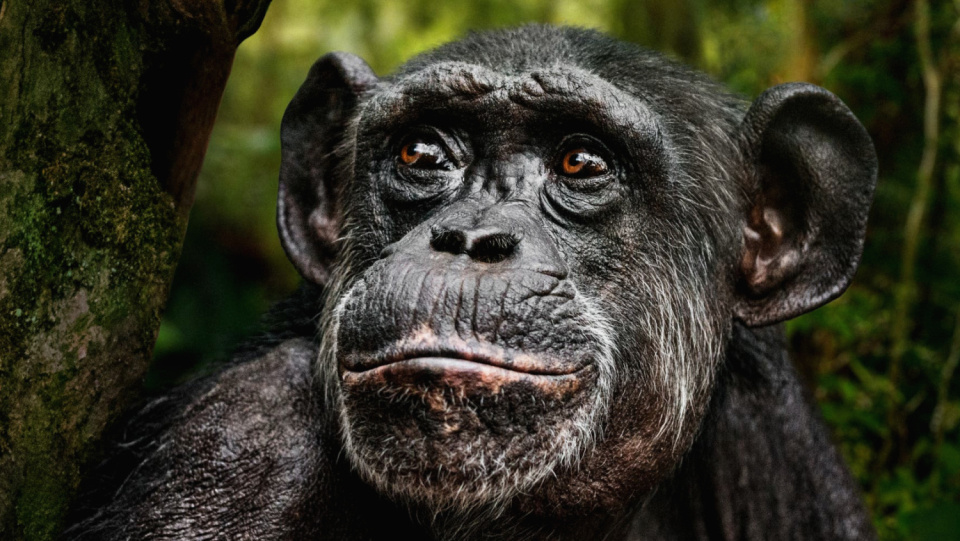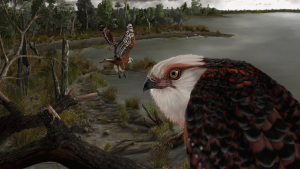3080 people in the canton of Basel-Stadt have signed an initiative to amend the Basel Constitution. Only a new sentence should be inserted. But it is a revolutionary sentence: "This constitution also guarantees: the right of nonhuman primates to life and to physical and mental integrity." Like humans, monkeys should also be given basic rights. They would no longer be just legal objects, but would themselves become holders of rights that they – or better: their representatives – could sue in court.
This goal could actually become a reality now. For the first time, a population is voted on fundamental rights for animals worldwide. If the initiative will find a majority in the almost 110,000 voters of the canton of Basel-Stadt next Sunday and would include fundamental rights for primates in the Baselstadt constitution, that would also be a world premiere. And the chances for this are not that bad.
The initiative receives prominent support from abroad, for example from the Grand Old Lady of ape research, Jane Goodall, or the German anthropologist Volker Sommer. There is also local approval: With the Social Democrats and the Greens, the two strongest parties in the city are campaigning for a Yes. The parties in the middle and right of it, however, reject the initiative.
Met the zeitgeist
Behind the project is Sentience Politics, an organization that claims to be committed to the interests of nonhuman animals. Aminea Graber, the campaign manager of the Primate Initiative, is "cautiously optimistic" shortly before the vote. We have captured the zeitgeist. I think that the population wants to take this step and give basic rights to non-human primates."
The reason for this could not only be in the zeitgeist, but also in the fact that the initiative demands revolutionary things, but will hardly have any effects. In principle, it is easier to agree if this does not show tangible consequences.
The primate rights would primarily bind the state organs. Institutions organised under private law could at best be indirectly affected. However, there are currently no monkeys living in state care. Neither the University of Basel nor the cantonal hospitals keep primates. Incriminating experiments on monkeys, which would be incompatible with the fundamental rights to life and to physical and mental integrity, are not planned in Basel.
Even the pharmaceutical industry, which is traditionally very well represented in the city, has no more experiments on primates there for a few years. Nevertheless, the pharmaceutical industry and other business associations reject the initiative. They fear that fundamental rights could "prove to be an obstacle to new attempts in the service of research in the future. The initiators countered that biomedical research remains possible as long as the basic rights of the primates are guaranteed. If the experiments did not constitute a burden - such as in behavioral research - and they did not significantly impair the general condition of the animals, nothing should be obtained.
For monkeys, there is no guarantee of liberty.
In Basel, most of the monkeys live in the Zoological Garden, the "zolli", as it is affectionately called in the local dialect. Although the "customs Duty" also receives state funding, but as a public limited company it is organized under private law and therefore also not directly affected by the initiative. In any case, the keeping of primates should not be prohibited. A right to individual freedom is not provided for the monkeys in the Constitution.
"We are not fundamentally against animal husbandry," says the campaign manager Tamina Graber. “It is important to us that the primates can live a dignified life. If this is possible in the zoo, that's okay. If not, then the zoo must ensure that the fundamental rights are guaranteed. ”A ban on posture in Basel would also have little chance of being approved by the voting population. The oldest zoo in Switzerland at almost 150 years is extremely popular, the monkey enclosures are a crowd puller.
Nevertheless, the zoo does not like the primate initiative. There is certainly the danger that it could come to lawsuits and you have to close the monkey house. However, fundamental rights for non-human primates are superfluous anyway, as the Swiss Animal Welfare Act already obliges owners to protect animals from unjustified suffering, fear and pain.
Graber admits that conflicts that affect the zoo can certainly occur if a monkey is sick and suffered strongly. Then the fundamental right to life and the fundamental right to physical and mental integrity.
Usually veterinarians flee very suffering animals, for which there is no worthwhile therapy. This would hardly be compatible with the fundamental right to life. Tamina Graber sees the following solution: »We could choose to let the suffering animal go. We humans are also not put to sleep, but there is the possibility to give pain relievers to make dying more bearable. We also see this path with non -human primates. "
Above eye level
The argument that Switzerland already has a strict animal welfare law in international comparison and even the animal dignity does not accept GRABER: »Even if we have the best animal welfare law, this does not mean that we deal well with animals and could not improve our handling. "
Above all, the law determines how we are allowed to use animals: "The focus of the Animal Welfare Act is still on humans. Animals such as non-human primates are protected only as long as our own human interests do not override this protection. But if they receive fundamental rights, they are on an equal footing with us.«
Since 2003, animals in Switzerland have no longer been legally considered things. The fact that animals are sensitive and suffering were taken into account. Therefore, they are not put on the same level as humans. This is exactly where the initiators start. “Although animals are legally not things, the law places people over the animal. That is not consistent, «says Tamina Graber. »If animals are not things, then we have to give them rights. This is exactly what we demand for our closest relatives, the non -human primates. "
A global animal rights movement
The Primate initiative follows on from an idea that is already 30 years old. in 1993, ethicists Paola Cavalieri and Peter Singer published a collection of essays under the title "The Great Ape Project". A year later, the book was published in German translation under the title "Human Rights for the Great Apes". This has given rise to a movement that advocates for the rights of "our closest relatives" worldwide: for chimpanzees, gorillas, orangutans and bonobos. In Germany, the Giordano Bruno Stiftung has been promoting the "Great Ape Project" since 2011.
The Basel Initiative wants to expand fundamental rights not only on the apes, but to all over 300 non-human primate species. Since all primates have the same interests not to suffer and be killed, no differentiation is necessary within the primate order. Tamina Graber also does not speak of "human rights". The fundamental rights for primates leaned against our "human" fundamental rights. However, human rights encompassed more than primate fundamental rights: »Non-human primates do not want religious freedom or freedom of expression. They are not interested in that. "
The idea that animals should also have rights is even older than the »Great Ape Project«, dating back to the 19th century. The discussion within animal ethics really picked up speed in the second half of the 20th century. In 1975, the book »Animal Liberation. The Liberation of Animals« by Australian ethicist Peter Singer. In 1983, the American philosopher Tom Regan took the animal rights approach even more consistently in »The Case for Animal Rights«. Since then, animal rights groups have formed around the world to fight for better legal recognition not only of great apes, but of all animals, especially farm animals.
Is a change appropriate?
Gradually, the idea of animal rights seems to leave theory and arrive in applied law, in the judiciary. At the end of the 1980s, for example, the lawsuit brought by the »Seals of the North Sea« against the Federal Republic of Germany caused a sensation. On behalf of the seals, environmental groups went to court and complained against marine pollution. However, the judges did not agree: seals were not capable of suing.
In 2000, judge in the Indian state of Kerala asked in a case in a case that dealt with the attitude of circus animals: "If people can have fundamental rights, why not animals?" In 2011 and 2015 Indian courts stated that birds recorded the right would have to fly freely and not be blocked in cages. A few years later, in 2016, judge Marià Alejandra Mauricio finally fell a historical judgment in Argentina. Cecilia, a chimpanzee that had been locked up in a close cage for years, granted the legal protection requested by the Argentine Association of Lawyers for Animal Rights and had release.
Significant symbolic meaning
Although there are individual cases in which dishes have treated animals as carriers of certain rights. But the effects of these cases should not be underestimated. The departure may be announced by a traditionally anthropocentric legal opinion, in which people are at the top and continue to hold freedom of disposal towards animals. The constitutional court of the canton of Basel-Stadt, which checked the admissibility of the primate initiative, writes in its judgment: "With the subjectivation of animal rights, a fundamentally new legal development is put up for discussion, which will give a considerable symbolic meaning with impulse effect."
This assessment is shared by Swiss lawyer Saskia Stucki, who researches animal rights at the Max Planck Institute for Comparative Public Law and International Law in Heidelberg. With animal rights, we are currently witnessing a new generation of rights. Even if their implementation is not so easy to implement, the animals have recently increasingly appeared on the "legal map".
So also recently back in Pakistan. In his judgment, a judge formulated various fundamental rights for (zoo) animals and ordered their move to a species-appropriate refuge. The judge was basically: Corona pandemic in particular calls us to think about our handling of animals. It shows how tight human and non -human life were related. Now the moment has come to pause and think about the suffering of other living things and our position towards them.
Tamina Graber from the Primate Initiative can only agree. »How do we want to live together with fellow beings, with nature? It is this question that drives us.« Fundamental rights are well suited to discuss this. »With this initiative, we want to initiate a paradigm shift.« The eyes of animal rights activists worldwide are now on Basel. Will human primates be willing to grant their own basic rights to their close, non-human relatives? The decision will be made at noon on 13 February 2022.



















